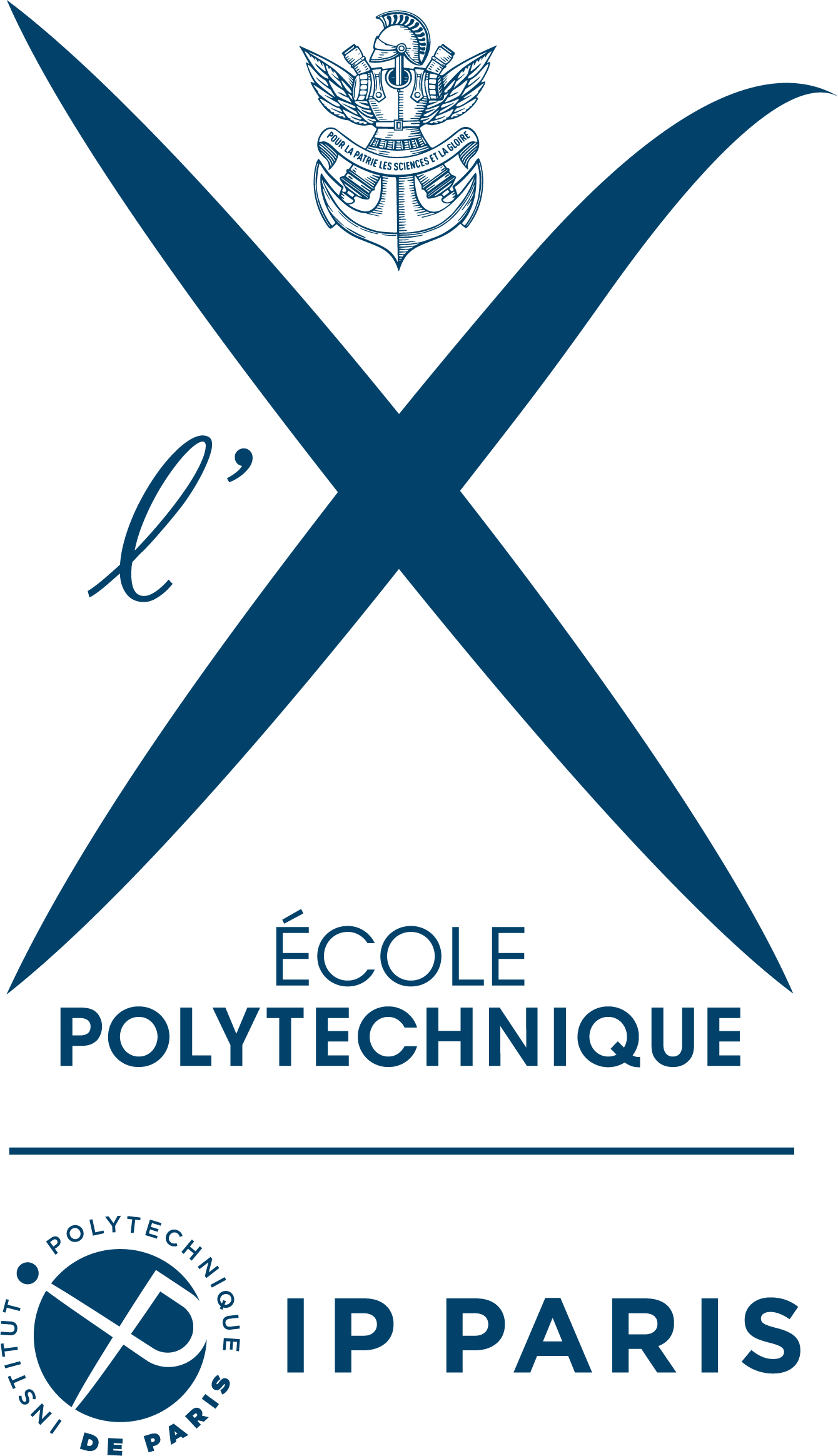[Accouplement d’Euler-Poincaré, indice de Dirac et accouplement elliptique des modules de Harish-Chandra]
Let be a connected real reductive group with maximal compact subgroup of equal rank, and let be the category of Harish-Chandra modules for . We relate three differently defined pairings between two finite length modules and in : the Euler-Poincaré pairing, the natural pairing between the Dirac indices of and , and the elliptic pairing of [2]. (The Dirac index is a virtual finite-dimensional representation of , the spin double cover of .) We construct index functions for any finite length Harish-Chandra module . Each of these functions is very cuspidal in the sense of Labesse, and its orbital integral on elliptic elements coincides with the character of . From this we deduce that the Dirac index pairing coincide with the elliptic pairing. Analogy with the case of Hecke algebras studied in [8] and [7] and a formal (but not rigorous) computation led us to conjecture that the first two pairings coincide. We show that they are both computed as the indices of Fredholm pairs (defined here in an algebraic sense) of operators acting on the same spaces. Recently, Huang and Sun have established the equality between the Euler-Poincaré and the elliptic pairing, thereby proving directly the analogue of a result of Schneider and Stuhler for -adic groups [25].
Soit un groupe réductif réel connexe et soit un sous-groupe compact maximal que l’on suppose de même rang. Nous relions trois accouplements entre modules de Harish-Chandra de longueur finie et : l’accouplement d’Euler-Poincaré, l’accouplement naturel entre les indices de Dirac de et et l’accouplement elliptique d’Arthur [2] (l’indice de Dirac est une représentation virtuelle de dimension finie de , le revêtement Spin à deux feuillets de ). Nous construisons des fonctions indices pour tout module de Harish-Chandra de longueur finie . Chacune de ces fonctions est très cuspidale au sens de Labesse, et son intégrale orbitale coïncide sur les éléments elliptiques avec le caractère de . De ceci nous déduisons que l’accouplement naturel des indices de Dirac coïncide avec l’accouplement elliptique. Une analogie avec le cas des algèbres de Hecke considéré dans [8] et [7] et un calcul formel (mais non rigoureux) nous ont amenés à conjecturer que les deux premiers accouplements coïncident eux aussi. Nous montrons qu’ils peuvent tout deux être exprimés comme indices de paires de Fredholm (définis ici dans un sens algébrique) d’opérateurs agissant sur les même espaces. Récemment Huang et Sun ont établi l’égalité entre accouplement d’Euler-Poincaré et accouplement elliptique, démontrant ainsi directement l’analogue d’un résultat de Schneider et Stuhler pour les groupes -adiques [25].
Accepté le :
Publié le :
DOI : 10.5802/jep.32
Keywords: Harish-Chandra module, elliptic representation, Euler-Poincaré pairing, elliptic pairing, Dirac cohomology
Mots-clés : Module de Harish-Chandra, représentation elliptique, accouplement d’Euler-Poincaré, accouplement elliptique, cohomologie de Dirac
David Renard 1
 CC-BY-ND 4.0
CC-BY-ND 4.0
@article{JEP_2016__3__209_0,
author = {David Renard},
title = {Euler-Poincar\'e pairing, {Dirac} index and elliptic pairing for {Harish-Chandra} modules},
journal = {Journal de l{\textquoteright}\'Ecole polytechnique {\textemdash} Math\'ematiques},
pages = {209--229},
publisher = {ole polytechnique},
volume = {3},
year = {2016},
doi = {10.5802/jep.32},
zbl = {1356.22014},
mrnumber = {3491807},
language = {en},
url = {https://jep.centre-mersenne.org/articles/10.5802/jep.32/}
}
TY - JOUR AU - David Renard TI - Euler-Poincaré pairing, Dirac index and elliptic pairing for Harish-Chandra modules JO - Journal de l’École polytechnique — Mathématiques PY - 2016 SP - 209 EP - 229 VL - 3 PB - ole polytechnique UR - https://jep.centre-mersenne.org/articles/10.5802/jep.32/ DO - 10.5802/jep.32 LA - en ID - JEP_2016__3__209_0 ER -
%0 Journal Article %A David Renard %T Euler-Poincaré pairing, Dirac index and elliptic pairing for Harish-Chandra modules %J Journal de l’École polytechnique — Mathématiques %D 2016 %P 209-229 %V 3 %I ole polytechnique %U https://jep.centre-mersenne.org/articles/10.5802/jep.32/ %R 10.5802/jep.32 %G en %F JEP_2016__3__209_0
David Renard. Euler-Poincaré pairing, Dirac index and elliptic pairing for Harish-Chandra modules. Journal de l’École polytechnique — Mathématiques, Tome 3 (2016), pp. 209-229. doi : 10.5802/jep.32. https://jep.centre-mersenne.org/articles/10.5802/jep.32/
[1] - “On Fredholm index in Banach spaces”, Integral Equations Operator Theory 25 (1996) no. 1, p. 1-34 | DOI | MR
[2] - “On elliptic tempered characters”, Acta Math. 171 (1993) no. 1, p. 73-138 | DOI | MR | Zbl
[3] - “A geometric construction of the discrete series for semisimple Lie groups”, Invent. Math. 42 (1977), p. 1-62 | DOI | MR | Zbl
[4] - “Cyclic homology and the Selberg principle”, J. Funct. Anal. 109 (1992) no. 2, p. 289-330 | DOI | MR | Zbl
[5] - “Intégrales orbitales sur les groupes de Lie réductifs”, Ann. Sci. École Norm. Sup. (4) 27 (1994) no. 5, p. 573-609 | DOI | Numdam | Zbl
[6] - “Formule d’inversion des intégrales orbitales sur les groupes de Lie réductifs”, J. Funct. Anal. 134 (1995) no. 1, p. 100-182 | DOI | MR | Zbl
[7] - “Algebraic and analytic Dirac induction for graded affine Hecke algebras” (2012), arXiv:1201.2130 | Zbl
[8] - “Characters of Springer representations on elliptic conjugacy classes”, Duke Math. J. 162 (2013) no. 2, p. 201-223 | DOI | MR | Zbl
[9] - “On the of a -adic group”, Invent. Math. 140 (2000) no. 1, p. 171-226 | DOI | MR | Zbl
[10] - “Une preuve courte du principe de Selberg pour un groupe -adique”, Proc. Amer. Math. Soc. 129 (2001) no. 4, p. 1213-1217 | DOI | MR | Zbl
[11] - “Supertempered distributions on real reductive groups”, in Studies in applied mathematics, Adv. Math. Suppl. Stud., vol. 8, Academic Press, New York, 1983, p. 139-153 | MR | Zbl
[12] - “Dirac cohomology, elliptic representations and endoscopy”, in Representations of Reductive Groups: In Honor of the 60th Birthday of David A. Vogan, Jr., Progress in Math., vol. 312, Springer International Publishing, 2015, p. 241-276 | DOI | MR | Zbl
[13] - “Dirac cohomology of some Harish-Chandra modules”, Transform. Groups 14 (2009) no. 1, p. 163-173 | DOI | MR | Zbl
[14] - “Dirac cohomology, unitary representations and a proof of a conjecture of Vogan”, J. Amer. Math. Soc. 15 (2002) no. 1, p. 185-202 | DOI | MR | Zbl
[15] - Dirac operators in representation theory, Mathematics: Theory & Applications, Birkhäuser Boston, Inc., Boston, MA, 2006 | Zbl
[16] - “The Euler-Poincaré pairing of Harish-Chandra modules”, arXiv:1509.01755v1
[17] - “Cuspidal geometry of -adic groups”, J. Analyse Math. 47 (1986), p. 1-36 | DOI | MR | Zbl
[18] - Cohomological induction and unitary representations, Princeton Mathematical Series, vol. 45, Princeton University Press, Princeton, NJ, 1995 | MR | Zbl
[19] - “Clifford algebra analogue of the Hopf-Koszul-Samelson theorem, the -decomposition , and the -module structure of ”, Adv. Math. 125 (1997) no. 2, p. 275-350 | DOI
[20] - “Tamagawa numbers”, Ann. of Math. (2) 127 (1988) no. 3, p. 629-646 | DOI | MR | Zbl
[21] - “Pseudo-coefficients très cuspidaux et -théorie”, Math. Ann. 291 (1991) no. 4, p. 607-616 | DOI | MR | Zbl
[22] - Clifford algebras and Lie theory, Ergeb. Math. Grenzgeb. (3), vol. 58, Springer, Heidelberg, 2013 | DOI | MR | Zbl
[23] - “Dirac operator and the discrete series”, Ann. of Math. (2) 96 (1972), p. 1-30 | DOI | MR | Zbl
[24] - “Euler-Poincaré pairing, Dirac index and elliptic pairing for Harish-Chandra modules”, arXiv:1409.4166 | DOI | Zbl
[25] - “Representation theory and sheaves on the Bruhat-Tits building”, Publ. Math. Inst. Hautes Études Sci. 85 (1997), p. 97-191 | DOI | Numdam | Zbl
[26] - “Caractérisation des intégrales orbitales sur un groupe réductif -adique”, J. Fac. Sci. Univ. Tokyo Sect. IA Math. 28 (1981) no. 3, p. 945-961 | Zbl
[27] - “On formal dimensions for reductive -adic groups”, in Festschrift in honor of I.I. Piatetski-Shapiro on the occasion of his sixtieth birthday, Part I (Ramat Aviv, 1989), Israel Math. Conf. Proc., vol. 2, Weizmann, Jerusalem, 1990, p. 225-266 | MR | Zbl
[28] - Real reductive groups. I, Pure and Applied Mathematics, vol. 132, Academic Press, Inc., Boston, MA, 1988 | MR | Zbl
Cité par Sources :



